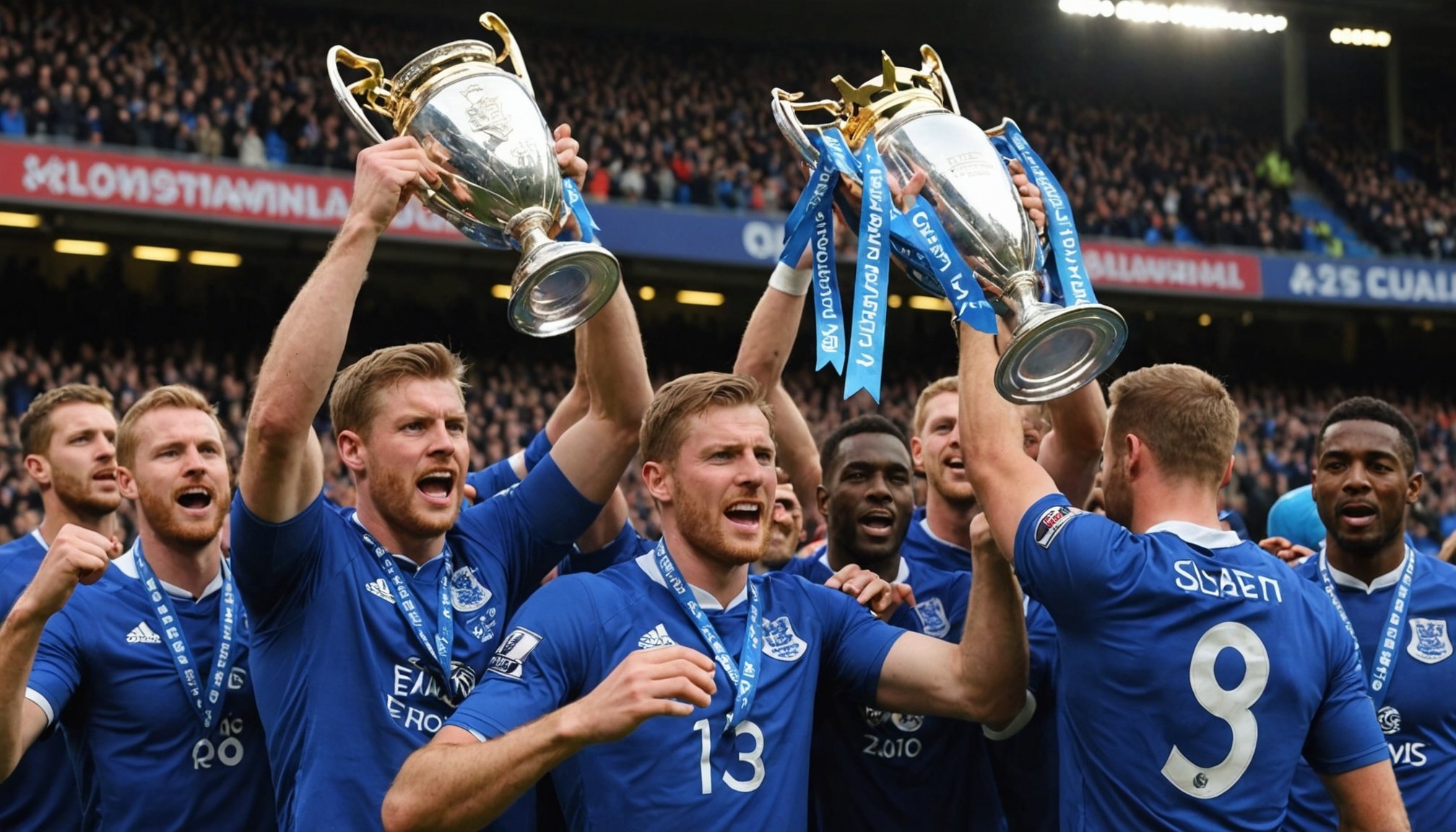Football in the UK is more than just a sport; it’s a cultural phenomenon, a shared passion that resonates with millions. Within this intense landscape, even the most successful teams face setbacks. Defeats are an inevitable part of the beautiful game, but what distinguishes top-performing teams is their ability to bounce back stronger than ever. In this article, we delve into the strategies that elite UK football teams utilize to recover from losses, regaining their momentum and reaffirming their place at the top.
Analyzing and Learning from Defeats
In the world of professional football, every match, whether won or lost, offers valuable lessons. Successful teams meticulously analyze each game to understand their shortcomings and transform them into growth opportunities.
Also to see : How can mental health support be integrated into the training of UK football players?
Understanding Weaknesses
Post-match analysis often begins with identifying specific areas where the team underperformed. Coaches and players review footage, scrutinize statistics, and evaluate individual performances to pinpoint the root causes of a defeat. Recognizing these weaknesses enables teams to address them directly, ensuring they are better prepared for future encounters.
Emphasizing Constructive Feedback
Constructive feedback is crucial for fostering a positive learning environment. Coaches provide players with insights into what went wrong, offering solutions rather than criticism. This approach encourages players to view defeats as a stepping stone rather than a setback, instilling a mindset focused on improvement.
Also read : How can UK football clubs create effective partnerships with local businesses for mutual benefit?
Harnessing Technology
The integration of technology has revolutionized how teams analyze performance. With advanced data analytics, teams can assess patterns, movements, and decision-making, providing a comprehensive overview of both successes and failures. This technological edge gives teams a competitive advantage by refining their strategies and tactics.
Boosting Team Morale and Mental Strength
A crucial factor in bouncing back from defeats is maintaining high team morale and mental resilience. Successful UK football teams understand the importance of fostering a positive and supportive atmosphere, which is instrumental in overcoming challenges.
Cultivating a Culture of Positivity
Teams prioritize fostering a positive team culture where players feel valued and supported. This involves celebrating small victories, acknowledging individual contributions, and emphasizing the importance of unity. Such an environment helps to uplift spirits and build confidence, especially after a loss.
Mental Health and Resilience Training
Professional football clubs are increasingly focusing on the mental well-being of their players. By incorporating mental health support and resilience training into their routines, teams equip their players with the tools needed to cope with the pressures of the game. Mindfulness, meditation, and psychological counseling are some of the practices that help players maintain mental fortitude.
Leadership and Role Models
Strong leadership is pivotal in guiding a team through adversity. Captains and senior players often serve as role models, demonstrating resilience and determination in the face of a defeat. Their leadership not only inspires younger players but also reinforces a collective commitment to overcoming obstacles.
Strategic Adjustments and Tactical Changes
Adapting and evolving tactics is essential for any team aiming to recover from a defeat. Successful teams are adept at making strategic adjustments that can turn the tide in their favor.
Flexibility and Adaptability
The ability to adapt to different opponents and match situations is crucial. Coaches assess the effectiveness of their current tactics and make necessary adjustments to counter their opponents’ strengths. This flexibility ensures that teams remain unpredictable and challenging to play against.
Training Regimens Tailored to Needs
Training sessions are often customized to address specific areas of improvement identified during match analysis. Whether it’s sharpening defensive strategies or enhancing offensive plays, focused training regimens help players refine their skills and capabilities.
Innovation and Creativity
Innovation often leads to success on the field. Coaches encourage players to think outside the box, experimenting with new formations or playing styles. This creative approach keeps the team dynamic and adaptable, ready to face diverse challenges head-on.
Harnessing the Power of Supportive Fans
The support of passionate fans can be a powerful catalyst for a team’s recovery. Top UK football teams recognize and actively engage with their fan base to harness this energy.
Building a Strong Connection
Teams strive to establish a meaningful connection with their fans by engaging with them both on and off the field. Whether it’s through social media interactions or community events, these efforts foster a sense of belonging and loyalty among supporters.
Utilizing Home Advantage
The atmosphere of playing at a home stadium, filled with cheering fans, can significantly impact a team’s performance. Successful teams capitalize on this advantage, using the energy and encouragement from their supporters to fuel their comeback efforts.
Transparency and Communication
Maintaining open communication with fans is integral to managing expectations during challenging times. By being transparent about their strategies and progress, teams build trust and rapport with their fan base, ensuring unwavering support even after setbacks.
Defeats are part and parcel of football, but what sets successful UK teams apart is their resilience and strategic approach to recovery. By focusing on thorough analysis, boosting team morale, making tactical adjustments, and leveraging fan support, these teams demonstrate a comprehensive and effective recovery strategy. As these strategies continue to evolve, their importance in maintaining a team’s competitive edge and long-term success remains undeniable, inspiring future generations of players and fans alike.











